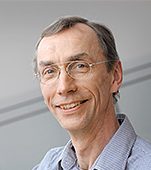
Svante Pääbo
Max Planck Institute for Evolutionary Anthropology
Germany
EMBO | EMBL Symposium
This conference will take place at EMBL Heidelberg, with the option to attend virtually.
Combining genome-wide data from ancient and modern populations opens new windows into the past and, importantly, their integration with archaeological evidence and historical records elucidates aspects of human history and cultural evolution of past societies. Population-scale sequencing projects investigating past and present human diversity have already provided us with extraordinary insights into patterns of human variation and mobility through time and space. Moreover, genome-wide data from archaic human remains, such as Neandertals and Denisovans, allows to investigate human evolution in action and to provide direct insights into genetic changes that define our own lineage.
The available dataset of genome-wide data from present-day and archaic humans has risen exponentially since the first EMBO ‘Reconstructing the human past’ meeting in 2019. This has drastically enhanced our ability to carry out further large-scale studies on both global and local scales across deeply sampled time transects, making it now possible to ask and answer questions that were simply impossible to address before, in addition to motivating the development of new analytical methods. Critically, with new frontiers in data generation and analyses, questions on ethical practices in paleogenomics need to be considered.
Furthermore, the reconstruction of ancient pathogen genomes and metagenomic analysis of the oral and gut microbiomes provides us with molecular fossils to study microbial evolution through time. The potential of ancient DNA data to reconstruct genomic variation of human-associated animals and plants to understand the process of domestication and their evolutionary trajectory is equally promising to such studies in humans.
This meeting will involve scientists from population genetics, bioinformatics, microbiology, anthropology, archaeology and history and will strengthen future interactions in this young research field that is already changing the way we think about our past and will shape how we study genetic variation in the future.
“It was a wonderful opportunity to exchange science and get to know fellow researchers.” – Choongwon Jeong, Seoul National University, Seoul
“I can’t imagine a more dense and intense conference in the field of genomics of archaic humans. I extremely enjoyed the conference, and would like to give many thanks to the organisers who made it happen!” – Danat Yermakovich, cGEM, Institute of Genomics, University of Tartu, Estonia

Chinese Academy of Sciences
China

The Francis Crick Institute /
Max Planck for Evolutionary Anthropology
UK
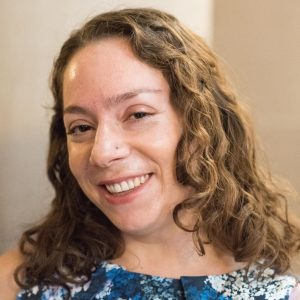
University of Washington
USA
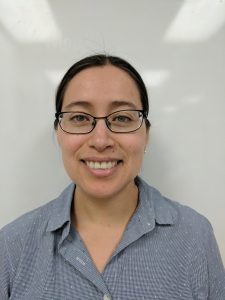
Brown University
USA
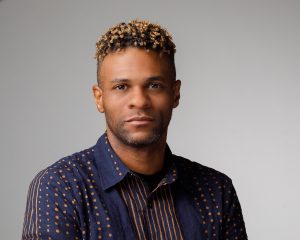
Yale School of Medicine
USA
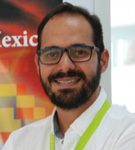
Cinvestav UGA-Langebio
Mexico

University of Kansas
USA
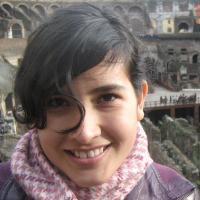
University of Copenhagen
Denmark
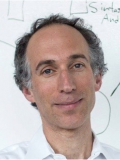
Harvard University
USA

University of Lausanne
Switzerland
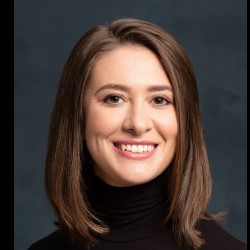
University of Tartu
Estonia
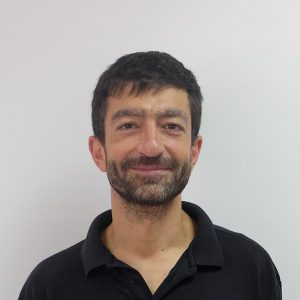
Middle East Technical University
Türkiye
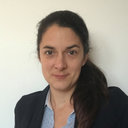
Hungarian Academy of Sciences
Hungary
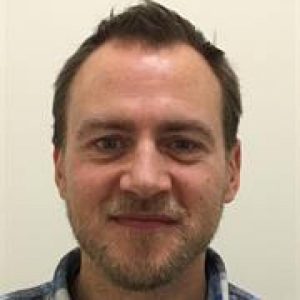
Australian National University
Australia
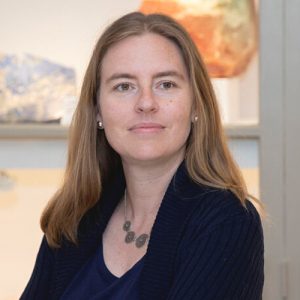
Harvard University
USA
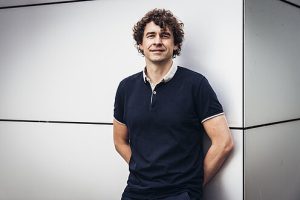
Max Planck Institute for Evolutionary Anthropology
Germany
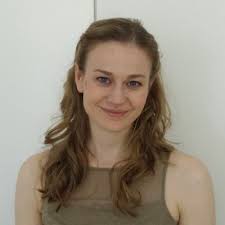
University of Copenhagen
Denmark
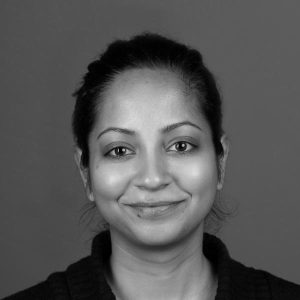
University of Chicago
USA
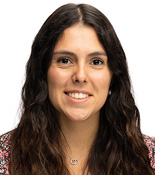
EMBL Heidelberg
Germany
Are you on social media? Post using #EESHuman and don’t forget to tag @EMBLEvents.
| Time (Europe/Berlin) | Speaker |
|---|---|
| 12:00 – 13:30 | Registration and Light Refreshments |
| 13:30 – 13:45 | Opening Remarks |
| 13:45 – 14:45 | Keynote Lecture: Archaic genomics Svante Pääbo – Max Planck Institute for Evolutionary Anthropology, Germany |
| 14:45 – 16:15 | Session 1 – Our closest living and extinct relatives Chairs: Johannes Krause – Max Planck Institute for Evolutionary Anthropology, Germany Pontus Skoglund – The Francis Crick Institute, UK |
| 14:45 – 15:15 | News from the Palaeolithic: ancient genomes and neandertal-human interactions Mateja Hajdinjak – The Francis Crick Institute, UK / Max Planck for Evolutionary Anthropology, Germany |
| 15:15 – 15:30 | The Neandertal growth hormone receptor Hugo Zeberg – Karolinska Institute, Sweden |
| 15:30 – 15:45 | Simultaneous bidirectional crispr-editing in cortical brain organoids uncovers hierarchical interactions among nearly fixed mutations specific to the sapiens lineage Cedric Boeckx – Catalan Institute for Advanced Studies and Research, Spain |
| 15:45 – 16:00 | Uncovering the noncoding variants that shaped human evolution David Gokhman – Weizmann Institute of Science, Israel |
| 16:00 – 16:15 | A structured coalescent model reveals deep ancestral structure shared by all modern humans Trevor Cousins – University of Cambridge, UK |
| 16:15 – 16:45 | Coffee Break and Meet the Speakers |
| 16:45 – 18:45 | Session 2 – Detecting patterns of selection Chairs: Pontus Skoglund – The Francis Crick Institute, UK Johannes Krause – Max Planck Institute for Evolutionary Anthropology, Germany |
| 16:45 – 17:15 | The MUC19 gene in denisovans, neanderthals, and modern humans: An evolutionary history of introgression and natural selection Emilia Huerta-Sanchez – Brown University, USA |
| 17:15 – 17:45 | Reconstructing the chronology of selection in maize domestication Jazmin Ramos-Madrigal – University of Copenhagen, Denmark Not available on demand |
| 17:45 – 18:00 | Three ancient DNA time transects from the Americas provide evidence for pre-contact selection in Coastal Brazil, the Central Andes, and Mesoamerica Alison Barton – Harvard University, USA |
| 18:00 – 18:15 | Recent expansion and evolutionary selection of human-specific NOTCH2NLB allele enhancing cortical neurogenesis Ikuo Suzuki – The University of Tokyo, Japan |
| 18:15 – 18:45 | Hundreds of findings of natural selection realize the promise of ancient DNA to elucidate human adaptation David Reich – Harvard University, USA |
| 18:45 – 19:30 | Flash Talk Session 1 #45 Marcos Araujo Castro e Silva #55 Nicolas Brucato #57 Zehui Chen #59 Daniel R. Cuesta-Aguirre #65 Michal Feldman #73 Lei Huang #77 Xiaowen Jia #79 Dilek Koptekin #85 Zhi Li |
| 19:30 – 21:15 | Dinner in EMBL Canteen |
| 21:15 – 22:45 | After dinner drinks with live jazz music in ATC Foyer |
| Time (Europe/Berlin) | Speaker |
|---|---|
| 09:00 – 14:30 | Session 3 – Reconstructing the genetic history of human populations Chairs: Ida Moltke – University of Copenhagen, Denmark Pontus Skoglund – The Francis Crick Institute, UK |
| 09:00 – 09:30 | The genetic history of Southern East Asia Qiaomei Fu – Chinese Academy of Sciences, China Not available on demand |
| 09:30 – 10:00 | Kinship and gender roles in early Neolithic societies: an Anatolian perspective Mehmet Somel – Middle East Technical University, Turkey |
| 10:00 – 10:15 | Exploring genetic relationships of ceramic age Caribbean individuals from the Dominican Republic Judith Ballesteros Villascán – Max Planck Institute for Evolutionary Anthropology, Germany |
| 10:15 – 10:30 | Steppe ancestry in Western Eurasia and the spread of the germanic languages Hugh McColl – Health Faculty, Globe Institute, Denmark |
| 10:30 – 11:00 | Coffee Break and Meet the Speakers |
| 11:00 – 11:30 | Reconstructing the evolution of the mutation rate and spectrum Kelley Harris – University of Washington, USA |
| 11:30 – 11:45 | Long-term continuity and genetic insights of the Punan Batu: Understanding hunter-gatherer resilience in Borneo Pradiptajati Kusuma – Laboratory of Genome Diversity and Diseases, Indonesia |
| 11:45 – 12:00 | First genetic insights into ancient population history in the Highlands of Papua New Guinea Konstantina Cheshmedzhieva – University of Vienna, Austria |
| 12:00 – 13:30 | Lunch and Meet the Editors |
| 13:30 – 14:00 | The future of our microbial past Christina Warinner – Harvard University, USA |
| 14:00 – 14:15 | Farming practices reduced generation intervals in post-glacial Western Eurasia Moisès Coll Macià – Aarhus University, Denmark |
| 14:15 – 14:30 | Paleogenomic analyses of archaeological remains reveal sex roles and mobility of ancient families in central Mexico Daniela Orozco – National Laboratory of Genomics for Biodiversity (UGA-LANGEBIO), CINVESTAV, Mexico |
| 14:30 – 15:00 | Coffee Break and Meet the Speakers |
| 15:00 – 15:30 | Flash Talk Session 2 #48 Rodrigo Barquera #49 William Barrie #50 Owyn Beneker #93 Santiago Gerardo Medina-Muñoz #101 Sandra Penske #107 Adam Ben Rohrlach #109 Susanna Sawyer #119 Laura Vilà Valls #123 Matthew Williams #125 Wipada Woravatin |
| 15:30 – 17:00 | Poster Session 1 (odd numbers) |
| 17:00 | Free Evening |
| Time (Europe/Berlin) | Speaker |
|---|---|
| 09:00 – 10:00 | Session 3 – Reconstructing the genetic history of human populations Chairs: Maanasa Raghavan – University of Chicago, USA Johannes Krause – Max Planck Institute for Evolutionary Anthropology, Germany |
| 09:00 – 09:30 | Reconstructing human migrations from genomic data across Latin America and the Pacific Andrés Moreno-Estrada – Cinvestav UGA-Langebio, Mexico |
| 09:30 – 09:45 | Using 858,635 individuals’ haplotype-sharing between British and Danish populations to infer the North Sea migration history Xiaolei Zhang – EMBL-EBI, UK |
| 09:45 – 10:00 | The origin and composition of the “forgotten people”: genetic analysis of the sarmatian-period population of the carpathian basin Oszkar Schutz – University of Szeged, Hungary |
| 10:00 – 10:30 | Coffee Break and Meet the Speakers |
| 10:30 – 11:30 | Session 4 – Ethical considerations and research practices in paleogenomics Chair: Maanasa Raghavan – University of Chicago, USA |
| 10:30 – 11:00 | Engaged research with indigenous communities in North America: an example from the Central and Southern Plains Jennifer Raff – University of Kansas, USA |
| 11:00 – 11:30 | The genetic origins and impacts of historical Papuan migrations into Wallacea Ray Tobler – Australian National University, Australia |
| 11:30 – 11:45 | Discussion: “Ethics” |
| 11:45 – 15:00 | Session 5 – Integrating genetic and historical evidence Chairs: Ida Moltke – University of Copenhagen, Denmark Johannes Krause – Max Planck Institute for Evolutionary Anthropology, Germany |
| 11:45 – 12:15 | Genomic investigations of the Early Medieval Southern Urals: synthesis and future perspectives Anna Szécsényi-Nagy – Hungarian Academy of Sciences, Hungary |
| 12:15 – 12:30 | A 4,000-years-old genome from Nuwayrat, Egypt Adeline Morez – The Francis Crick Institute; Liverpool John Moores University, UK |
| 12:30 – 12:45 | Unraveling the genomic history of European Jews Shamam Waldman – Harvard University, USA |
| 12:45 – 14:15 | Lunch |
| 14:15 – 14:45 | A genomic history of Rapa Nui and some methodological insights into ancient DNA analysis Anna Sapfo-Malaspinas – University of Lausanne, Switzerland |
| 14:45 – 15:00 | Archaeogenetic insights into the biological and cultural connectedness of bronze age Crete Alissa Mittnik – Max Planck Institute for Evolutionary Anthropology, Germany |
| 15:00 – 17:00 | Session 6 – Evolution of human pathogens, microbiome, and health Chairs: Johannes Krause – Max Planck Institute for Evolutionary Anthropology, Germany Pontus Skoglund – The Francis Crick Institute, UK |
| 15:00 – 15:30 | Ancient genomes and other evidence in the study of the evolution of human pathogens and immune response Christiana Scheib – University of Tartu, Estonia (Virtual) Not available on demand |
| 15:30 – 15:45 | Repeated plague infections across six generations of neolithic farmers Frederik Seersholm – University of Copenhagen, Denmark |
| 15:45 – 16:15 | Coffee Break and Meet the Speakers |
| 16:15 – 16:30 | Deep-sequencing and de novo assembly of microbial sequences through non-invasive sampling of 500-year-old Inca mummies Michelle Hämmerle – University of Vienna, Austria |
| 16:30 – 16:45 | Analysis of a 5,500-year-old Treponema pallidum-like genome from Sabana de Bogotá, Colombia Davide Bozzi – University of Lausanne, Switzerland |
| 16:45 – 17:00 | Paleogenomic reconstruction of pathogens from the 19th-century epidemic in Tlatelolco, Mexico Miriam Bravo – International Laboratory for Human Genome Research, Mexico |
| 17:00 – 17:45 | Flash Talk Session 3 #56 Théo Cavinato #58 Jérémy Choin #60 Roslyn Curry #68 Lucia Franchini #70 Keith Daniel Harris #76 Iseult Jackson #90 Javier Maravall López #99 Cecilia Padilla Iglesias #104 Niraj Rai #106 Iker Rivas-González #120 Maria Teresa Vizzari |
| 17:45 – 19:15 | Poster Session 2 (even numbers) |
| 19:15 – 21:00 | Conference Dinner |
| 21:00 – 23:30 | Conference Party |
| Time (Europe/Berlin) | Speaker |
|---|---|
| 09:30 – 12:00 | Session 7 – New methods and avenues for ancient genomic data analysis Chairs: Pontus Skoglund – The Francis Crick Institute, UK Ida Moltke – University of Copenhagen, Denmark |
| 09:30 – 10:00 | Ancient human DNA from archaeological sediment Diyendo Massilani – Yale School of Medicine, USA |
| 10:00 – 10:15 | A flexible new admixture dating approach to jointly analyse modern and ancient individuals sampled at different times Nancy Bird – University College London, UK |
| 10:15 – 10:30 | An efficient way to infer demographic history from the distribution of distances between heterozygous sites in diploid species Tommaso Stentella – Max Planck Institute for Molecular Genetics, Germany |
| 10:30 – 11:00 | Coffee Break and Meet the Speakers |
| 11:00 – 11:15 | Reconstructing phenotypic differences between ancient individuals Gili Greenbaum – The Hebrew University of Jerusalem, Israel |
| 11:15 – 11:30 | Accurate and robust inference of the relationship between two individuals using aDNA Alexandra Strang – Natural History Museum and UCL, UK |
| 11:30 – 11:45 | Population genetic analysis of Holocene Europeans using sediment nuclear DNA from open-air living spaces Niall Cooke – Max Planck Institute for Evolutionary Anthropology, Germany |
| 11:45 – 12:00 | High-resolution ancestry reconstruction of early Medieval Europe Leo Speidel – University College London; Francis Crick Institute, UK |
| 12:00 – 12:15 | Closing Remarks and Poster Prize Announcements |
| 12:15 | Packed Lunch and Departure |
On-site registration fees include admission, conference materials, meals and coffee breaks. Participants are expected to book and pay their own accommodation and travel expenses.
Virtual registration fees include access to all of the talks (livestreamed and on demand) and facility to submit questions.
| On-site Academia | €725 |
| On-site PhD Student | €625 |
| On-site Industry | €925 |
| On-site Journal Editors* | €300 |
| Virtual Academia | €225 |
| Virtual PhD Student | €175 |
| Virtual Industry | €275 |
* Editors from scientific journals are allowed to attend at a reduced rate, but asked to contribute to the conference in return by taking part in ‘meet the editors’ sessions or other planned activities within the programme.
A letter to support your visa application will be issued, on request, once payment of the registration fee is confirmed. We recommend that you book your visa appointment as soon as possible, to avoid any delay with your visa application.
Accredited journalists may be eligible to register for complimentary press registration. Registrants may be required to provide accreditation or equivalent proof of press membership after registration. Please contact Luana Ribeiro for more information. Please note that we do not offer complimentary registrations for editors of scientific journals.
Registration will be on a first come, first served basis. Your place can only be confirmed after payment of the registration fee. If you are added to our waiting list, please consider taking advantage of our offerings to participate virtually.
On-site participants: Types of payments accepted are international bank transfers and credit card payments.
Virtual participants: We are only able to accept card payments. In exceptional cases we can accept bank transfers. Please contact events@embl.de for details.
Only participants registering to attend the on-site event are eligible to submit an abstract. Abstracts will not be accepted from virtual participants.
After registration you can submit your abstract via a separate link that will be provided in the email confirmation. Alternatively, you can access the link on the confirmation page directly after registering. The same login credentials are used for both processes.
Please note:
Abstract body: The limit of 2000 characters refers to manually typed text and excludes spaces. If an error occurs try using a different web browser (preferably Google Chrome or Mozilla Firefox).
If you copy-paste the text into the form, hidden formatting might still be included which may cause the text to exceed the 2,000 character limit resulting in an error message. We recommend you clear all formatting before pasting in the text.
If you have special symbols in your text, make sure you are using Unicode characters, otherwise these will not be recognised.
Title: The title should not exceed 20 words. Only the first word of the title should start with a capital letter and the rest should be lowercase.
Authors and affiliations: Please fill in the author’s details as requested in the online form. The compulsory fields are: First Name, Last Name, Organisation Name (Affiliation or Company), Country and Email.
Kindly mark only one author in the role of First Author and please don’t forget to indicate who will be the Presenter.
Please enter your co-authors correctly via the system by adding accounts together with their organisation/institute. Do not copy-paste them into the body of the abstract text, as they will not be indexed in the abstract book.
Presentation types: When submitting your abstract, you can apply for an oral or poster presentation. A selection process will take place with the results announced 2-3 weeks after the abstract submission deadline.
For detailed instructions on how to submit a conference abstract, follow the instructions provided in this video.
Please check our FAQs pages for further information on how to submit an abstract.
Limited financial assistance is provided by the EMBL Advanced Training Centre Corporate Partnership Programme and EMBO in the form of registration fee waivers, travel grants, and childcare grants.
Your place in the meeting is only confirmed by paying the registration fee, which is mandatory even when receiving a fee waiver.
The fee waiver will cover the registration sum that you have paid to attend the course or conference.
The travel grant will cover the cost of travel to an on-site event (airfare, train, bus, taxi, accommodation, visa, and/or registration fees*) and is provided up to specified caps which are normally as follows:
–up to €400 for participants travelling to an EMBL Conference or EMBO|EMBL Symposium from within Europe.
–up to €1000 for participants travelling to an EMBL Conference or EMBO|EMBL Symposium from outside Europe.
–up to €500 for any participant travelling to an EMBO Workshop.
–up to €1000 for any participant working in Chile, India, Singapore or Taiwan travelling to an EMBO Workshop.
–up to €700 for any participant working in Croatia, Czech Republic, Estonia, Greece, Hungary, Italy, Lithuania, Luxembourg, Poland, Slovenia, and Turkey travelling to an EMBO Workshop.
*Registration fees are only covered for EMBO Workshops
The organisers may reduce the grant cap to accommodate more participants. Recipients will be notified of their travel cap amount when they are informed of the outcome of their application. Original receipts must be provided with your signature for all costs incurred within two months of completion of travel. Scanned copies cannot be accepted.
There is the possibility to apply for a childcare grant to offset child care costs incurred by participants, speakers, and organisers when attending a conference.
Eligible costs include (but are not limited to) fees for a baby-sitter or child-care facility, and travel costs for a caregiver. Please note that priority will be given to early stage researchers. In order to apply for this grant, you must be registered by the abstract submission deadline. There is a limited amount of funding available for the childcare grants and funds will be distributed amongst eligible applicants.
On-site participants
You may apply for financial assistance when submitting your abstract. In your application you will be asked to answer questions regarding why your lab cannot fund your attendance and how your attendance will make a difference to your career. Application for financial support will not affect the outcome of your registration application.
Virtual participants
If you are attending virtually, you can apply for financial assistance in the submission portal by the abstract deadline. Read the instructions on how to apply for financial assistance. Only submissions for financial assistance will be accepted. Presentation abstracts cannot be submitted here and will be declined.
In your application you will be asked to summarise your current work, answer questions regarding why your lab cannot fund your attendance, and how your attendance will make a difference to your career. Application for financial support will not affect the outcome of your registration application.
The scientific organisers will select the recipients of registration fee waivers and travel grants during the motivation letter or abstract selection process. Results will be announced approximately 6 – 8 weeks before the event start date, however for some events this may be delayed. Selection results do not impact your admission to the meeting. Selection for registration fee waivers and travel grants is based on scientific merit, your current work or study location, the reasons for needing financial support, and the impact this event will have on your career.
Childcare grants will be allocated in the same timeframe (6-8 weeks before the event start date). Please note that priority will be given to early-stage researchers.
Costs will be reimbursed after the meeting only once a reimbursement form and original receipts (from travel costs) have been received.
View our list of external funding opportunities and information on attending a conference as an event reporter.
For further information about financial assistance please refer to the FAQ page.
Accommodation is not included in the conference registration fee.
The hotels below have rooms on hold for participants until 20 August 2024, in some cases at special rates. Please email the hotel directly, quoting the booking code EES24-09 to confirm the exact price of the room.
For travel information, please see here.
If you are travelling to the conference within Germany then you are eligible for the Deutsche Bahn ‘Event Ticket’ (called the ‘Veranstaltungsticket’ in German). This will result in a lower ticket price if your travel distance to Heidelberg is more than 100 km. You need to provide proof of your event attendance when purchasing the ticket.
For more information in English see here or in German see here.
You can book your ticket here.
Conference shuttle buses are free of charge for participants, and depart from designated bus stops near the hotels to EMBL and back, mornings and evenings.
Please find the conference shuttle bus schedule here.
The bus stops for this conference are:
View Conference shuttle bus stops and hotels in a larger map. Please note that not every bus stop will be used for every event.
Address: EMBL, Meyerhofstraße 1, 69117 Heidelberg, Germany.
For more information about accommodation and travel, please refer to the FAQ page.
All meals and coffee breaks are included in the registration fee. Our catering staff will prepare a wide variety of vegetarian meals, meat and fish dishes, soups, pasta, fresh fruit and vegetables, as well as a variety of desserts.
Please wear your badge at all times when serving yourself.
No food or drinks are allowed in the auditorium.
There are lockers available next to the stairs leading down into the Auditorium. You will find some of those equipped with sockets to charge your smartphone/tablet etc.
In most places the electricity is 220 volts AC (50 cycles). An adaptor and a plug that fits the German socket may be needed for your appliances/laptop (i.e. American, Japanese, etc.). A USB charging station for electronic devices is available at the registration desk.
If you are interested in purchasing EMBL merchandise (products presented in the glass display in the registration area), please email the EMBL shop to place an order or get in contact with your Course Organiser.
Kindly note the EMBL shop is only open upon request and all purchases must be made in cash (Euros only).
Please read EMBL’s COVID-19 safety policy for on-site events.
Do not smoke in any EMBL building.
Eating and drinking is prohibited in the Auditorium and all laboratories.
Do not enter any restricted areas or the laboratories unless instructed to do so.
If first aid is required …
In case of fire …
Beyond first aid…
Please remember to bring your own medication, if needed, to the conference. Note that the next pharmacy is a 4-minute drive from the EMBL, but for many medications you will be required to see a doctor to get a prescription.
Ensure in advance that your medical insurance will cover you during your visit in the event that you do need to see a doctor while in Heidelberg. In any case, the EMBL Course and Conference Office will assist you to get to the pharmacy and a doctor of your choice if necessary.
Wi-Fi is available on campus using the EMBL-Events network and the event specific password, which will be provided on site. The eduroam network (secure, worldwide roaming access service developed for the international research and education community) is also available.
‘’Lost and Found’’ items are kept at the registration desk until the end of the conference.
There are lockers available on-site to store your luggage, which require a 2 EURO coin to operate. There is another luggage room on level E0, which is free to use but remains unlocked during the conference.
There is a nursing room available in the ATC Rooftop Lounge on level A29.
During the conference, an EMBL Photographer may be taking photos. If you would not like to appear in these, please inform the photographer or a member of the Course and Conference Office.
We can help to print your boarding pass/train ticket. Please send it to events@embl.de and collect your print-outs at the registration desk.
There is a room for prayer, meditation and yoga located on level E0 behind the Auditorium. Please be respectful of others using the room.
A variety of activities in Heidelberg can be found on the website of Heidelberg Marketing.
During the event, we provide conference shuttle buses to and from EMBL. In addition, there is the public bus 39A that serves the EMBL campus and taxis can be easily booked at any time. Information on the conference shuttle buses can be found on the individual event website and more detailed information on travelling to EMBL can be found on our Travel Information page.
| Hello | Hallo |
| Goodbye | Auf Wiedersehen (formal) Tschüss (informal) |
| Good morning | Guten Morgen |
| Good afternoon | Guten Tag |
| Good evening | Guten Abend |
| Good night | Gute Nacht |
| I’m sorry | Es tut mir leid |
| Excuse me… | Entschuldigen Sie |
| How are you? | Wie gehts? |
| I’m fine thanks. And you? | Mir geht es gut , danke. Und Dir/Ihnen? |
| What is your name | Wie heißen Sie? (formal) Wie heißt Du? (informal) |
| My name is | Ich heiße… |
| Do you speak English | Sprechen Sie englisch? |
| I don’t understand | Ich verstehe nicht |
| Please speak more slowly | Können Sie bitte langsamer sprechen |
| Thank you | Dankeschön |
| Where is the toilet? | Wo ist die Toilette? |
| Please call me a taxi | Bitte rufen Sie mir ein Taxi |
| How do I get to….? | Wie komme ich zum/zur…..? |
| A beer/two beers please | Ein Bier/zwei Bier bitte |
| A glass of red/white wine please | Ein Glas Rot/Weisswein bitte |
| The menu, please | Die Speisekarte, bitte |
| Is there a local speciality? | Gibt es eine Spezialität aus dieser Gegend? |
| I’m vegetarian | Ich bin Vegetarier |
| It was delicious | Es war hervorragend |
| The bill, please | Die Rechnung, bitte |
| I have a headache | Ich habe Kopfschmerzen |
| I have a sore throat | Ich habe Halsschmerzen |
| My stomach hurts | Ich habe Magenschmerzen |
| I’m allergic to | Ich bin allergisch gegen |
| I need a doctor who speaks English | Ich brauche einen Arzt, der englisch spricht |
* Talks will only be recorded upon speaker’s consent
Please note that only on-site participants are able to submit abstracts and participate in the poster sessions.
We are using an event platform for this conference. More information about the platform will be shared ahead of the conference.
Additional information can be found in our Code of Conduct.
It is important to stay healthy and move around, especially when you are attending an event virtually. We have put together a few coffee break stretches and yoga videos in the conference platform for you to enjoy during the event.
Please use the Q&A function in the event platform.
If you have any other questions, you can go to the Help Desk in the event platform. Click on ‘more’ on the top menu and click Help Desk.
The programme is planned based on the Europe/Berlin time zone, unless otherwise stated. Please take your time zone into consideration when planning your attendance.
Please find additional information including FAQs, terms and conditions, COVID-19 safety policy and travelling to EMBL on our Information for participants page.
COVID-19 information for on-site events at EMBL Heidelberg can be found in our COVID-19 FAQs.
Media partners
International Union of Biochemistry and Molecular Biology
Medinformatics, a Bon View Publishing journal
Molecular Systems Biology, an EMBO Press Journal
Open Biology, a Royal Society journal
Sponsorship opportunities
We offer a variety of event sponsoring possibilities, with the flexibility to select a set sponsorship package or combine individual sponsorship options to suit your event budget. Discounts are available for companies sponsoring multiple events at EMBL Heidelberg. View other conferences, or contact sponsorship@embl.de for further information.
If you are interested in becoming a media partner of this event, please visit our media partnerships webpage.
EMBL wishes to warn sponsors of EMBL conferences and courses of fraudulent schemes purporting to offer sponsorship opportunities on behalf of EMBL or affiliated with EMBL officials. One current scam campaign of which we are aware is conducted using the name ‘Judy Eastman’ (judy@gopcontact.a2hosted.com) and entails approaches to sponsors offering sponsorship opportunities on EMBL’s behalf. Please be kindly advised that all relevant communication regarding sponsorship of EMBL conferences, symposia and courses is handled by EMBL directly and is sent from an official EMBL account. EMBL does not work with any external providers on sponsorship acquisition.
Please also note that:
Suspicious communications purportedly from, for or on behalf of EMBL should be reported to EMBL at the following email address sponsorship@embl.de.
EMBO | EMBL Symposia promote scientific communication and collaboration in the European research area. They provide scientists with a platform to discuss and exchange ideas on forward-looking topics and new developments in the life sciences.
Topics emphasise upcoming developments and the interdisciplinary nature of related fields. Jointly funded and organised by EMBO and EMBL – and complementary to their respective courses, workshops, and conference programmes – the symposia promote scientific communication and collaboration.
All symposia are held in the EMBL Advanced Training Centre (ATC) in Heidelberg, Germany, or virtually.
Want to let others know you’re attending this event? Take a look at our shareable media and feel free to use them in your social media channels or presentations.

Date: 17 - 20 Sep 2024
Location: EMBL Heidelberg and Virtual
Venue: EMBL Advanced Training Centre
Deadline(s):
Abstract submission: Closed
Registration (On-site): Closed
Registration (Virtual): Closed
Organisers:
Contact: Luana Ribeiro